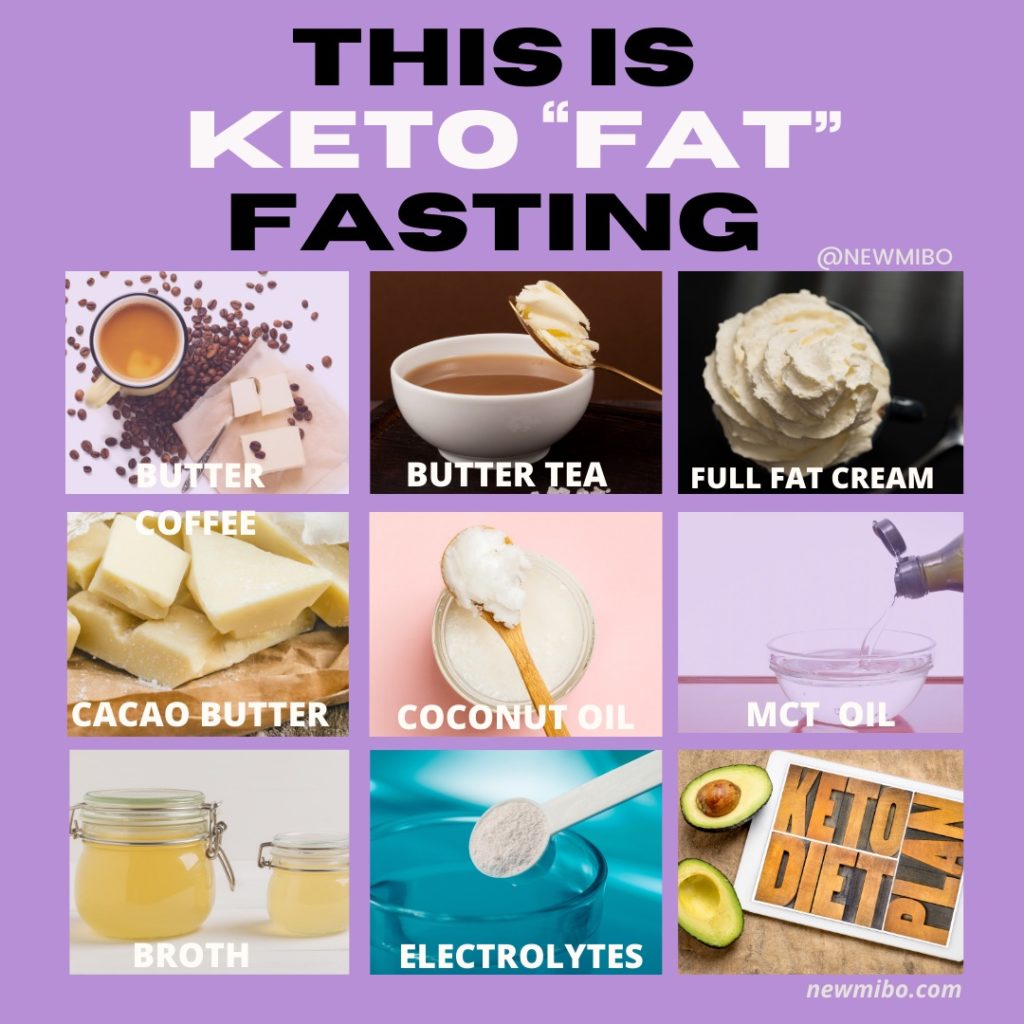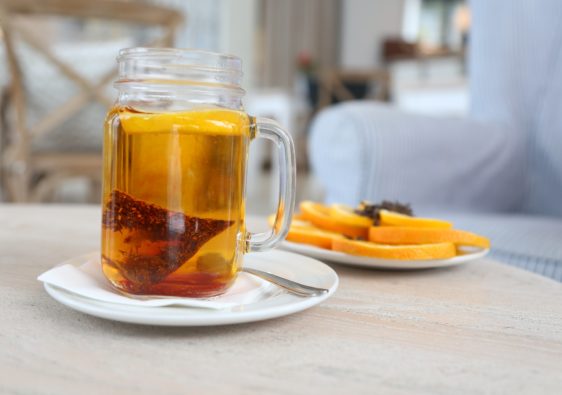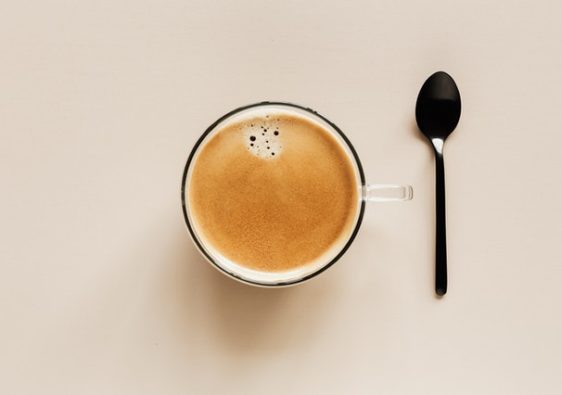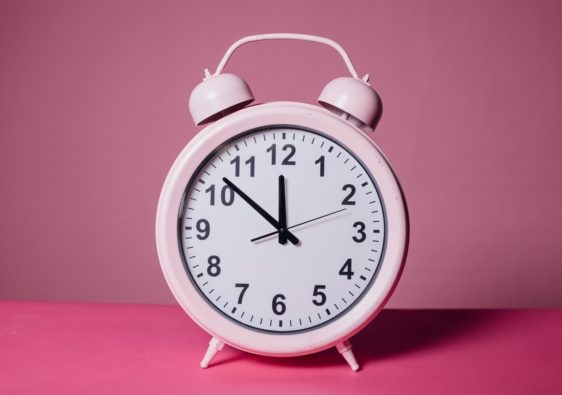There are many misconceptions about what constitutes as breaking a fast and fat fasting in particular. I can see how counter intuitive the idea of adding fat into beverages when fasting may seem, so try to keep an open mind and let’s get into the whys, pros and cons.
BRIEF HISTORY OF BUTTER TEA
BUTTER TEA or YAK TEA has been around for centuries. I remember seeing it in Brad Pitt’s movie “Seven years in Tibet” which is exactly where the beverage originates. Yak tea is an intrinsic part of Tibetan culture and dates back to the 7th century. The traditional recipe involves tea, yak butter and salt. Yak butter has been recently often substituted for cow’s butter. This beverage provides much needed fuel, warmth, hydration and apparently prevents lips from drying. As you can imagine maintaining energy and hydration can be quite a challenge in such high altitudes as the Himalayan mountains. People around the mountain region drink copious amounts of this beverage, some sources claim this could be up to 60 cups per day.

FROM BUTTER TEA TO BULLETPROOF COFFEE
You probably would have heard of Bulletproof coffee. Legend has it, American entrepreneur Dave Asprey developed this idea after a visit to Tibet and tasting yak tea. Upon his return to the States, he brought the idea of yak tea with him and adapted it to suit the western palette by swapping tea for coffee, yak butter for grass fed butter and boom! Bulletproof coffee was born. Bulletproof coffee is a brand name and involves a specific type of coffee bean, unsalted grass fed butter and liquid mct oil. A cup of bulletproof coffee can supply you with 230 – 400 calories and is recommended to drink in lieu of breakfast with the intention of providing high quality energy for the body as well as promoting weight loss. Yes, weight loss. This is where the controversial part lies and what seems to trigger discussions about bulletproof coffee.
So let’s have a look at what it means for us in terms of intermittent fasting.
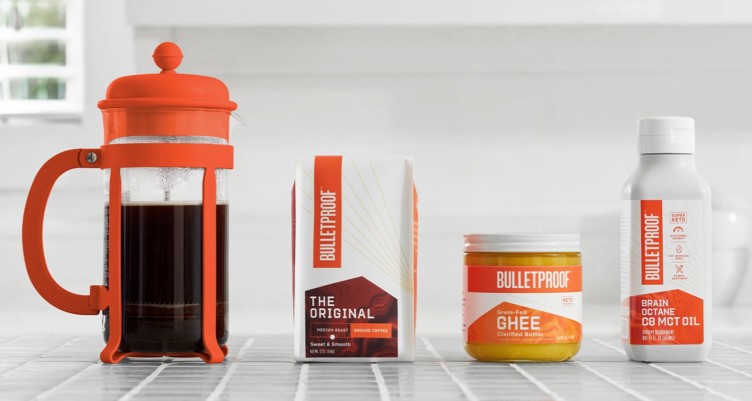
FAT AND FASTING
Firstly, let’s briefly identify what breaks a fast? Calories and sugar from carbohydrates break a fast. However, not all calories will raise your insulin. This is important. You can not burn fat in the presence of insulin. Insulin is our fat storing hormone which is why we want to keep it low and choose to fast. Fasting is the quickest way to lowering insulin and switching from being a sugar burner to becoming a fat burner.
Fat is the macronutrient which doesn’t impact insulin levels even though it contains the highest amount of calories. The moral of the story is that if you decide to break your fast with calories, try your best to maintain low insulin. This is why you should opt for fat rather than sugar or protein. Energy from fat in a fasted state is always going to be a superior choice. Save sugar and protein for your eating window.
PREPARATION
You can make your own butter coffee/tea. Brew some tea or coffee depending on your preference and add 1 tabelspoon of coconut oil and 1 tablespoon of other fat. This can be butter, ghee, cacao butter or full fat cream. You can use mct oil instead of coconut oil if you have one. Coconut oil is technically a cheaper replacement for mct oil if you do not wish to invest into one.
1 TB of coconut or mct oil + 1 TB of other fat (ideally butter)
Pour your beverage with the added fat into a blender and blend. Please be careful blending hot drinks. Alternatively, use a handheld milk frother to be safe. Blending it, will turn your drink into a creamy frothy magic unless you don’t mind the look of grease floating on top of your coffee.
Dr Fung is all for adding fat if it helps you fast longer or fast at all.
It is absolutely crucial you do not add any sugar. Your drink must be unsweetened. Do not consume anything sweet during fasting. Sugar will immediately raise your insulin levels and thus prevent fat burning. Fat does not.
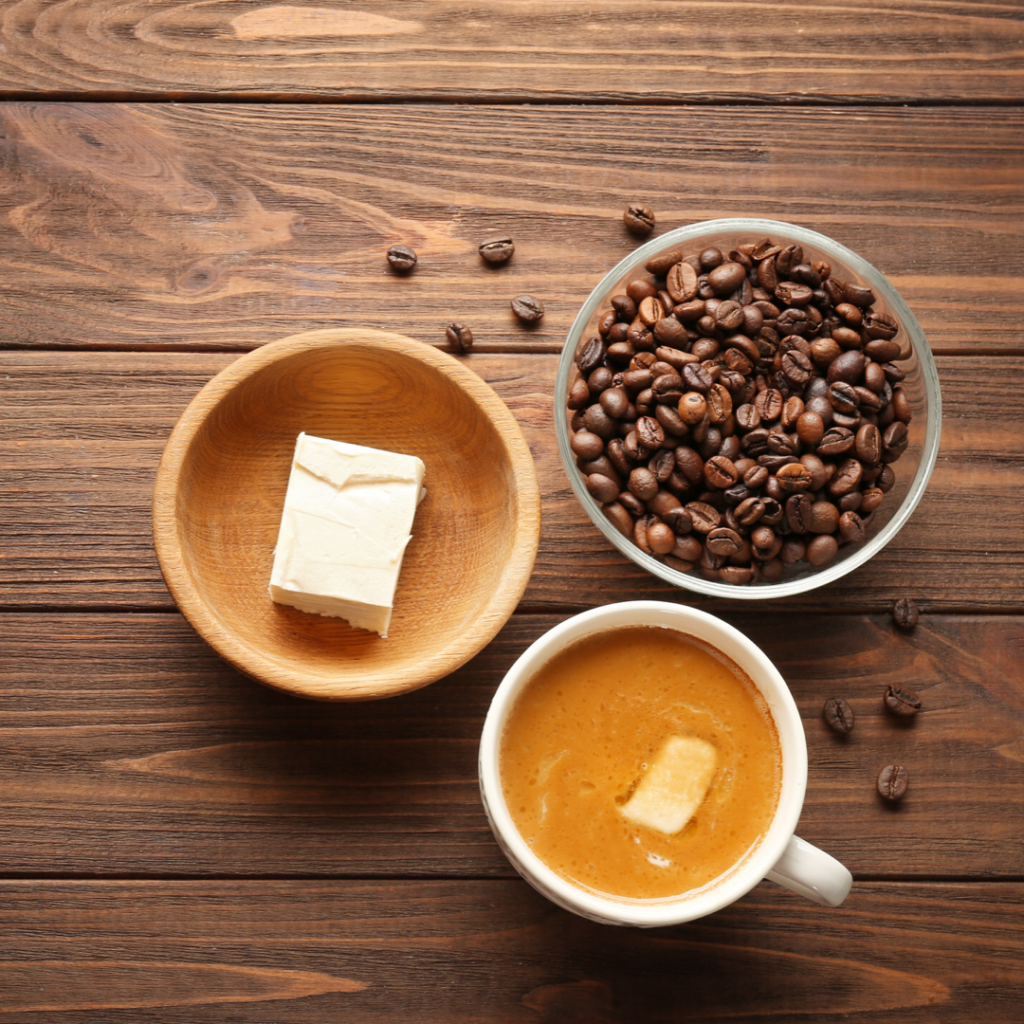
WHEN TO DRINK IT
When you first start experimenting with fasting you are going to experience hunger. Hunger is in fact what most people find off putting about fasting. What typically happens is one of two things;
(1) you’re hungry so you give in, end your fast and eat a full blown meal, or (2) you just need to take the edge of hunger, so you decide to grab a banana, have a snack bar or a smoothie
When you start to consider ending your fast due to unbearable hunger, it is at this point where butter coffee/tea comes into play.
Use it to take the edge of hunger and carry on fasting.
HOW OFTEN
If your goal is to lose weight and you are not following a low carb/ketogenic diet, use butter tea/coffee only when needed. Use it to transition into your intermittent fasting lifestyle or when hunger hits and it is a matter of ending a fast or adding fat and carrying on fasting for a further 3-5 hours.
Aim to eventually fast without any calories and use fat only if you need the extra help.
If you’re following a ketogenic diet you may be more benevolent with fat during fasting but that’s for another post.
WHAT ABOUT WEIGHT LOSS
Is drinking butter coffee/tea going to prevent weight loss? Yes and no. Think of drinking butter coffee as a way of developing your fasting skill. Being able to fast is what your goal should be at this stage. Weight loss will follow.
What you can do meanwhile, in order to avoid weight gain, is to account for the extra calories by treating fat beverages as a mini meal.
However, if you’re not losing weight, consider cutting these out completely and practice no calorie fasting instead.
Fat in itself is not going to make you fat, continuous overeating will.
SOURCES:
Bulletproof coffee recipe www.bulletproof.com
Tibetan butter tea www.tibettravel.org/tibetan-tea/
The Complete Guide To Fasting, 2016, Jason Fung MD with Jimmy Moore, p. 254
What is MCT oil www.webmd.com
